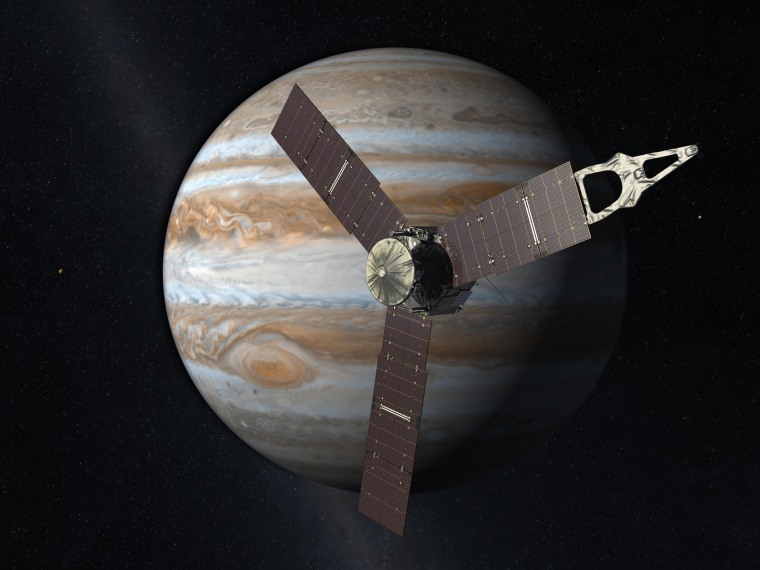This year's 4th of July will have a different kind of fireworks happening while you're lounging by the pool or grilling up some hamburgers. These fireworks will be more like particle showers as NASA's Juno spacecraft enters orbit around Jupiter and is blasted charged particles swirling through the planet's magnetosphere.
Juno is the first spacecraft to orbit Jupiter in thirteen years, since the Galileo mission ended in 2003. Juno's primary goal is to study Jupiter in the hopes of revealing more about how it most likely formed in the first place. As the largest planet in our solar system, scientists believe Jupiter was the first planet to coalesce and as such, it contains much of the original material of the disk the rest of the planets formed from. Juno carries instruments aboard that will enable scientists to probe Jupiter's interior structure, its atmosphere, and its magnetic field. Would you believe we still don't know what Jupiter's core is like? Or if it even has one at all!
So turn on NASA TV and check in with NASA social media on Monday night at 11:18pm EDT (8:18pm PDT) to follow along as Juno beings its 35 minute orbital insertion burn to slow it down enough to be captured by Jupiter. If all goes well, it will spend the next 18 months in the Jovian system penetrating Jupiter's thick cloud layers and revealing some of the secrets of planetary formation.
Tune it here at 9:00am PDT (12:00pm EDT) for a preview of Juno's arrival. And be sure to follow @NASAJuno on Twitter and NASA TV for live updates on Monday night.
And to get you excited for the big event, check out NASA'S sci-fi-esque trailer for the mission. If this doesn't get you pumped, I don't even want to know you.
Keep on geeking!
@Summer_Ash, In-house Astrophysicist
